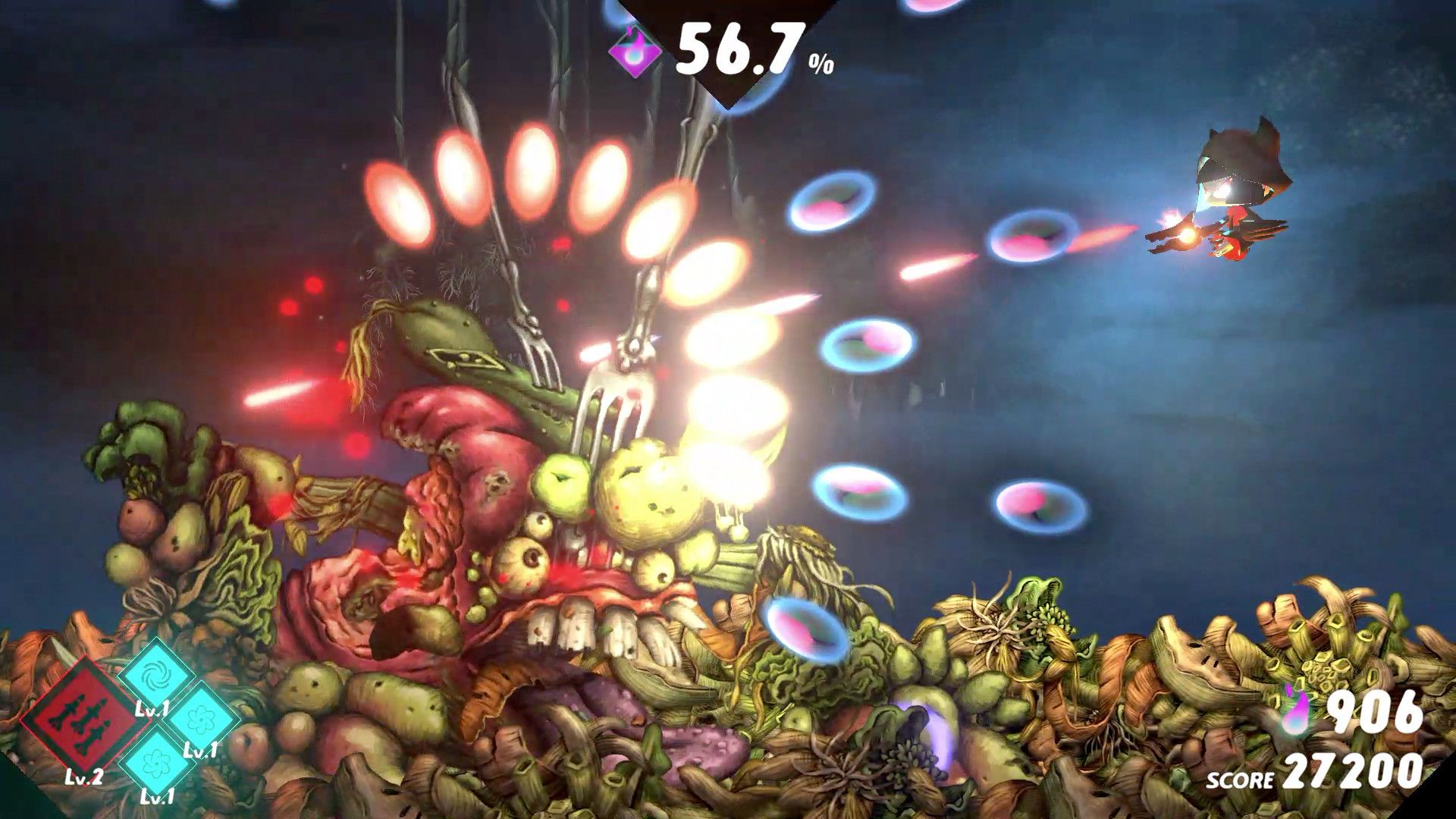NeverAwake Offers Unique Visuals and Little Victories With a Twin-Stick Shooter
Fighting to wake up against the tomato dragons

If you had told me that NeverAwake featured tomato dragons, I would have given you a funny look. I chop tomatoes every day for a dinner salad. They are very round, while dragons are angular even if you look at water creatures from the East. How would that work, even if you got Roma tomatoes?
It works well, actually. In NeverAwake, the tomato dragons spit fire and they annoyed me a lot. I took it personally and fired at them each round. With the game's Oversoul advantage, which adds shields and weapons access, defeating them was easier. They were hard to draw in my sketchbook later, so kudos to the designers and the dev team for conceptualizing them.

The dragons, however, are only part of the experience. NeverAwake explores how daily conflicts can plague us in our private moments, and how sometimes we need to summon our inner warrior to fix them. We may not have weapons in our dreams, but we have inner strength and people in our corner.
Fighting Primal Fears
Our main character in NeverAwake has a lot of phobias and dislikes. She doesn't like dogs or the dog park, remains leery of vegetables, and has severe social anxiety. School is a nightmare but she has a close relationship with her Gramma. Each day is a task and tribulation according to her daily journal, and we see the entries appear regardless of whether you win or lose to her foes.
There is also another clincher for this dilemma: the player character is also in a coma. We are experiencing her nightmares while seeing journal entries. To help her wake up, we have to shoot at the monsters in her dreams and collect souls while floating around a surreal landscape. Broccoli forests hide monsters in their foliage, while Corgis with sharp teeth zoom around dog parks in pursuit of her.

The experience feels like a lighter take on a Junji Ito manga, or the film Paprika. (Yes, there is a Junji Ito one-shot about a man aging because of his dreams.) If we want our protagonist to wake up, we have to help her fight her inner demons. The worlds are centered on parts of her body, so one of her legs may have vegetables to fight while one of her arms features a dog park. I admit, though, I felt a little guilty shooting at a dachshund that moved Tron-style around the platforming screen.
I've never before played a shooter with lore and story this deep. Playing on the Switch was quite an experience, being that I used controls instead of a keyboard. I had to learn how to adjust and learn from my mistakes, as the bosses track you on harder levels. You can predict monster patterns in different areas, so as to know when and where to shoot.
The gameplay felt cathartic. Even if I cleared a level, I would go back and replay it to improve my time. It wasn't just shooting at monsters and collecting souls; it was also understanding how to navigate a loop and complete it in a shorter amount of time while dealing with the character's ongoing anxieties and fears.
I also reveled in the visuals and the music, both of which were super creative. Later on, I plan on finding the soundtrack on YouTube to listen to while removed from the context of the game. The game's art, as mentioned, is genius. We see creative takes on making vegetables horrifying, and I say this as someone that helps prepare them for dinner every day.
Little Victories in the Real World

More importantly, the lore isn't depressing. Sure, the main character has landed in a coma, but it's not like the nightmare fuel from Omori. We see hope within her journal entries, and she has a clear support system from the family. Thus far there are no shocking twists.
Many of the journal entries show mundane but relatable issues, like arguing with a teacher during a field trip. They remind me that being a kid was rough and even rougher when you don't understand social situations. We see random victories and failures. Recording each one matters.
Why is the randomness within these mundane entries important? Because life, sad to say, is not like a video game. We don't reach a happy ending with ending credits that thank the viewers for playing. Instead, each day has little tasks, sidequests, and goals. Time moves, we get older, and, ideally, we learn. Breaking our negative cycles and habits can help us improve incrementally.
NeverAwake is remarkable in its creative eye for design and unique take on shooter games. While I haven't played many shooter games, I can't stop playing this one and I can't wait to reach the end.